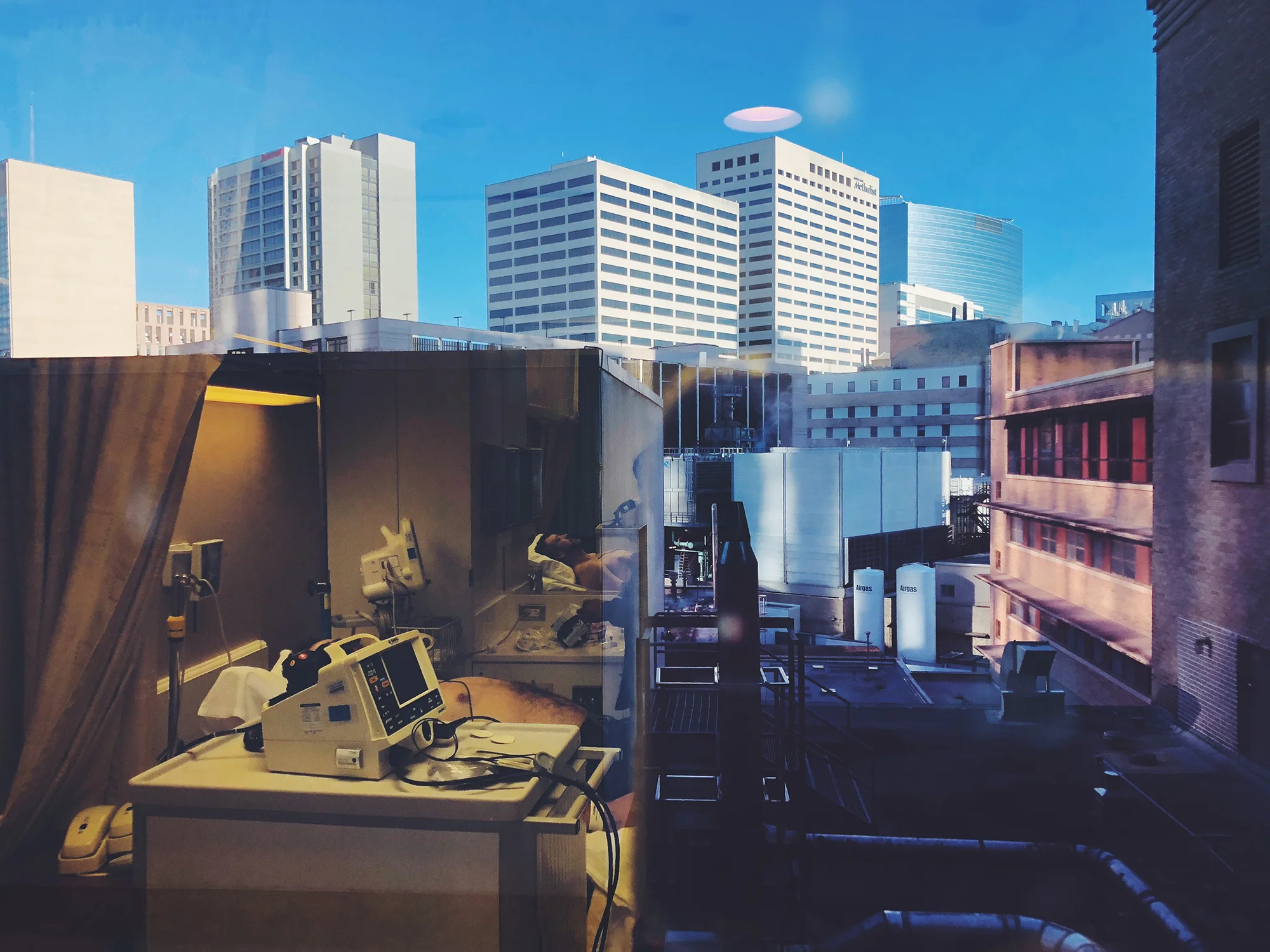thoughts before a heart procedure
The Texas Medical Center in Houston is the largest medical complex in the world. It creates a second skyline in our city, and is the home to some of the most famous treatment centres on the planet: MD Anderson Cancer Center. Texas Children’s. And the Texas Heart Institute at St. Luke’s, where I’m sitting today, waiting for Marcus.
Last month, the day after his 49th birthday, Marcus complained of “feeling weird.” Marcus is an athlete — an avid trail biker, runner, and even occasional triathlete — so he’s generally in great health. In fact, his resting heart rate is generally in the 50s, which compared to my relatively rapid heart rate, seems damned near comatose. But his smart watch that morning, the one that measures his heart rate, insisted that even though he’d just woken up, was an accelerated 95 beats per minute.
“Marcus, you should go to the doctor,” I say.
“Hmm …” he nods. “Okay, I’ll go on Friday.”
That Friday, Marcus tells me the first words from the doctor when she entered the examination room were, “Good morning, Marcus! God, you look like hell.”
“Cheers, Doc,” he grinned in response.
She hooks him up to an EKG machine, and her brow furrows.
“New onset atrial fibrillation,” he announces breezily to me later that afternoon. “I have to see a cardiologist. Preferably today.” We get him an appointment the following Monday. The cardiologist is optimistic: Marcus is young and in great health. He advises that Marcus cut out all exercise, alcohol, caffeine, chocolate and spicy foods (Marcus’ favourite things in life are exercise, alcohol, caffeine, chocolate and spicy foods). He gives him medications. “These should reset your heart,” the doctor says. “If these don’t work, we’ll talk about next steps.”
Days later: “As heart issues go, I think this is the simplest,” says Marcus.
“Elevated risk of stroke,” says Google.
The medicines don’t work. And so today, we’re at St. Luke’s for Marcus to undergo a cardioversion.
“Oh, cardioversion is simple,” say our friends, when we tell them. “My friend/uncle/cousin/grandmother had it, and his/her A-Fib never returned. It’s really easy. The easiest procedure you can have on your heart, practically.”
"Cardioversion is usually done by sending electric shocks to your heart through electrodes placed on your chest," says Google.
I’m no doctor, but I’ve seen the movie Frankenstein, and that just doesn’t seem normal.
The alarm goes off early this morning — we have to be at the hospital at 8 a.m. I roll over to check my Instagram feed on my phone, and find a post from my friend Rebecca. Rebecca’s sweet husband Hal was very recently diagnosed with Stage 4 pancreatic cancer; after a valiant fight, he passed away this weekend, leaving behind his devoted wife, and four beautiful young children. In this Instagram post, she shares what the final days with her husband were like — and they were so beautiful. Rebecca is a gifted writer.
But I keep coming back to this sentence: On Monday Hal spoke of a white light forming in the corner of the room. “Do you see it, Bec? It’s as white and round as the sun.”
There’s something about this sentence that comforts me deeply.
I say a prayer for Rebecca and her little ones. Then I get up and get dressed to take Marcus to the hospital.
After Marcus is sedated, the doctor and nurse invite me to leave his room. “Go sit on one of those chairs over there,” the nurse says. “We’ll call you when we’re done.”
I go to the end of the hall. I call my parents — they’re worried about Marcus, and Alex spent the night with them last night so they could take her to school this morning. As soon as my dad answers the phone, the doctor comes out. I hang up with my dad.
“You can come back in,” he says.
“Is everything okay?”
“Yes. When he wakes up, you can take him home.”
“Wait … you’re done?”
“Yes.”
“The procedure’s finished?”
“Yes.”
“And he’s not in A-Fib anymore?”
“Yes, that’s right. His heart is beating regularly. When he wakes up, you can take him home.”
About an hour later, Marcus wakes up, groggy, but feeling good. We’re back home now, and he’s sleeping off the rest of the sedative in his body.
I’m exhausted. And relieved.











You gotta get past the prickly bit.